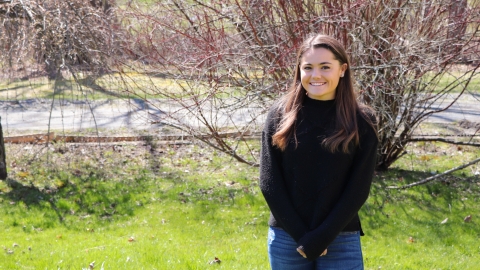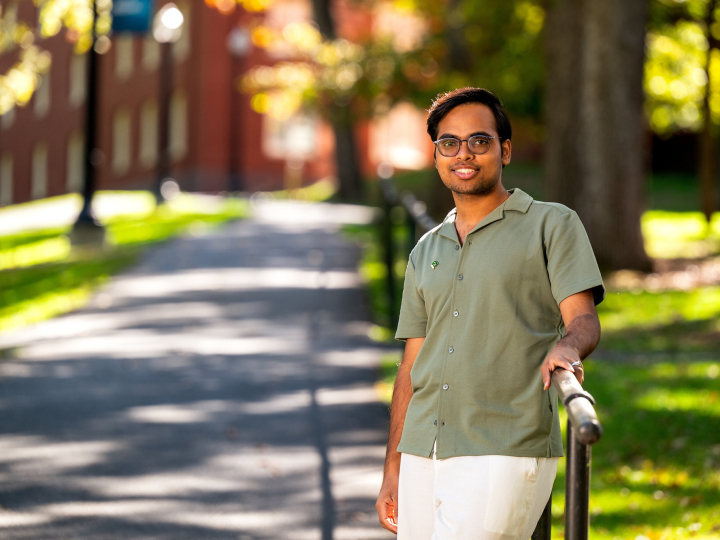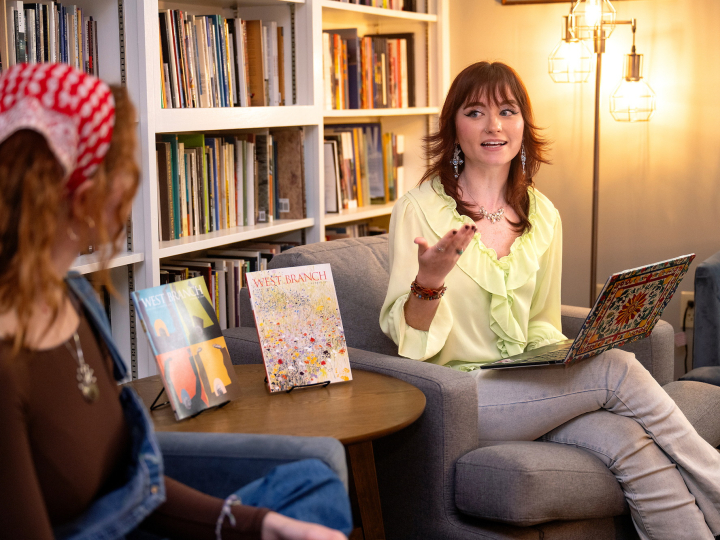
Emily Turner ’22, Sociology
June 4, 2020
The opportunity to conduct relevant studies with real-world impact is one of the things Emily Turner '22 says she values most at Bucknell. Photo by Lexie Bell
I took advantage of the liberal arts education Bucknell offers to discover what I liked. Now, I'm gaining all of this experience in data collection, archival research and interview analysis as a social science researcher.
Emily Turner '22 had no idea what she wanted to major in in college. That's one of the main reasons she chose to attend Bucknell, where she could explore her interests across disciplines and discover new passions through hands-on experiences.
"When you come to a liberal arts university having no idea what you want to do, you're able to take classes in diverse subjects and get to know what different professors are studying," says Turner, an undeclared arts & sciences major from Saratoga Springs, N.Y. "As I was sampling classes in my first year, I discovered excitement for the social sciences that I never knew I had."
Now, Turner is exploring sociology and public policy as a researcher on a collaborative project with Geisinger, a regional health care system in central Pennsylvania. The project — led by Elizabeth Durden, sociology — aims to incorporate patient voices in medical records so doctors can better address the needs and concerns of low-income patients.
Student researchers interviewed 40 women from the economically distressed Mt. Carmel and Shamokin, Pa., areas about their health care experiences. Turner is working to distill the interviews to help the research team analyze how socioeconomic status — in addition to gender and race — compound health care inequalities.
"Sometimes, for these women, getting care means choosing between filling a prescription and feeding their families," says Turner, who also interns for the Survey Research Lab in the Bucknell Institute for Public Policy. "As the choices they have to make regarding health become harder, their access to care becomes more limited."
Amid global health crises like COVID-19, social and economic barriers become even more difficult for working-class women to navigate. Those with essential jobs in supermarkets and shipping warehouses are not only at high risk for contracting the virus, but they're also less likely to seek testing and treatment.
"Low-income individuals may be more reluctant to visit hospitals during the crisis because they can't afford the expense of a doctor's visit," Turner explains. "Compiling local women's stories about their general lack of health care access could exemplify how they may suffer more from this pandemic than other groups."
Soon, the summaries Turner is writing will be included in the women's digital Geisinger health records so doctors can access them. Combining qualitative and quantitative data creates a well-rounded story about a person's health, she says. It also helps doctors and researchers see how patients might be treated differently for similar symptoms based on race, gender or class.
The combined methodological approach is also one that medical professionals have been advocating. The opportunity to conduct relevant studies with real-world impact is one of the things Turner says she values most at Bucknell. And it's helped her define what she wants to do after graduation.
"You get to take what you're learning in class and apply it to real-life situations — and explore new approaches and strategies," she says. "Even though I'm not entirely sure what I want to do after as a career, I do know that I want to go into research, which is why I love doing this kind of work here."

